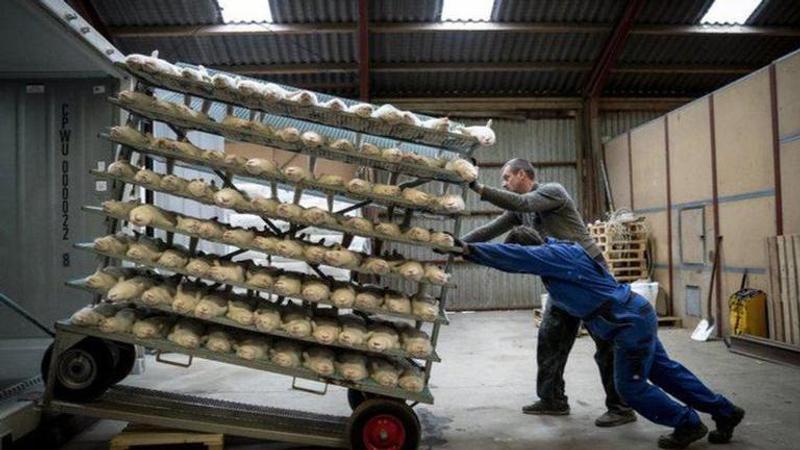Published 23:25 IST, November 12th 2020
EU agency: Coronavirus spread in minks could speed mutations
The European Centre for Disease Prevention and Control has issued new guidance to curb the spread of the coronavirus between minks and humans, warning that the transmission of COVID-19 among animals could speed up the number of mutations in the virus before it potentially jumps back to people.

The European Centre for Disease Prevention and Control has issued new guidance to curb the spread of the coronavirus between minks and humans, warning that the transmission of COVID-19 among animals could speed up the number of mutations in the virus before it potentially jumps back to people.
In a statement on Thursday, the ECDC said that when COVID-19 starts spreading on a mink farm, the large numbers of animal infections means “the virus can accumulate mutations more quickly in minks and spread back into the human population.”
Earlier this month, Denmark reported that 12 people were sickened by a variant of the coronavirus that had distinct genetic changes also seen in mink. The country began culling millions of minks in the north after reports of COVID-19 infection, and plans to cull all 15 million of the animals in Danish farms . Nationally, at least 216 of the 1,139 fur farms in Denmark have been infected with the coronavirus.
The coronavirus evolves constantly as it replicates but, to date, none of the identified mutations have changed anything about COVID-19’s transmissibility or lethality.
But the ECDC said allowing the coronavirus to spread within minks could have worrisome consequences, explaining that “the establishment of a virus reservoir among minks may give rise to problematic virus variants in the future.”
“There is currently high uncertainty and further investigations are required regarding the nature of these mutations and their implications for issues such as vaccine effectiveness, reinfections and spread or severity of the virus,” the ECDC said.
The agency recommended countries adopt protective measures at mink farms, including testing people working at the farms and sequencing the virus if they test positive for COVID-19. It also said animals should be tested and extra measures taken to prevent the spread of the virus from minks to humans.
Last week, WHO’s emergencies chief Dr. Michael Ryan said the U.N. health agency was “a long, long way from making any determination” about whether any of the mutated COVID-19 strains in minks might threaten people.
Dr. David Heymann, a distinguished fellow in global health at the think tank Chatham House and former WHO assistant director-general, said it would be unlikely for a mutated strain of the coronavirus from the minks in Denmark to change the course of the pandemic.
“This virus is in every country and it’s mutating differently in every country,” he said. “In order for this virus from the minks to be able to replace virus in other countries and impact on vaccines, it would have to be more fit than the other viruses that are around now and spread easier, more rapidly and replace those viruses in other countries.”
Updated 23:25 IST, November 12th 2020




